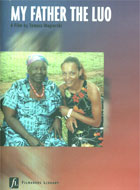
My Father the Luo 2009
Distributed by Filmakers Library, 124 East 40th Street, New York, NY 10016; 202-808-4980
Produced by Tomasz Magierski
Directed by Tomasz Magierski
DVD, color, 40 min.
Sr. High - Adult
African Studies, Multicultural Studies
Date Entered: 08/24/2009
Reviewed by Sue F. Phelps, Washington State University, Vancouver, WAMy Father the Luo is the story of self-discovery told about two people whose genetic history spans nations, race and culture. The main story line portrays the experience of Roma Ndolo of Germany, whose mother is from Poland and whose father is from Kenya. Filmed during the time of the Democratic National Convention, 2008, when Barak Obama is named a candidate for President of the United States, a parallel narrative about the candidate who has a Hawaiian mother and a Kenyan father, echoes the multicultural experience. As Roma travels to her family homeland, sees her grandmother, visits her father’s burial site, and experiences the culture of the Luo, the similarities between her journey and that of the eventual president emerge through film clips and conversation with Obama’s half sister.
In Luo tradition the child belongs to the father, making Barak Obama a son of Kenya. In this film Obama is greatly admired, seen as a hero and held up as an example to Kenyan children. There is footage of Obama’s trip to Kenya as a U.S. Senator, speeches from the convention, and Roma reading from Obama’s “Dreams from My Father” to illustrate that message. Kenyans are curious whether Obama is more Kenyan or American. In a conversation between Roma and Professor Gilbert Ogutu of the University of Nairobi the difference between being a son of Kenya through lineage and proudly identifying with the Luo culture is discussed as two types of kinship and integration of multicultural identity.
This film would be appropriate for high school and college libraries where coursework includes the topics of culture and multiculturalism. Some sub-themes are post colonialism, politics, family, and tribal traditions. The cinematography is well done with both urban and rural footage of people and their environment. Music includes “Barak Obama” by Coco Tea as well as other peices. Translation to English is easily understood with timing that does not hinder the telling of the story.